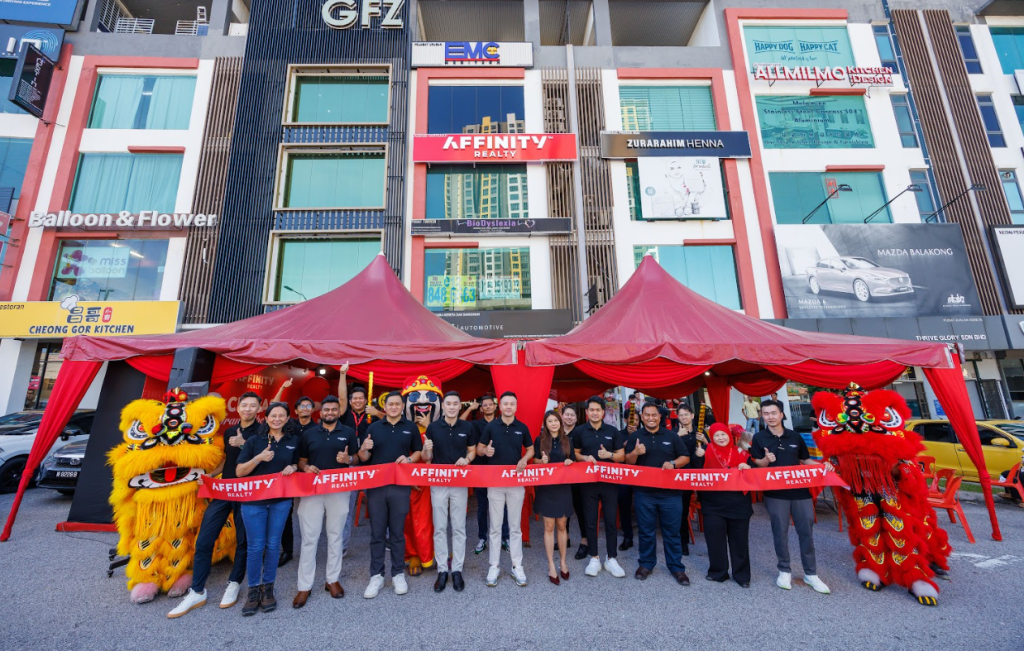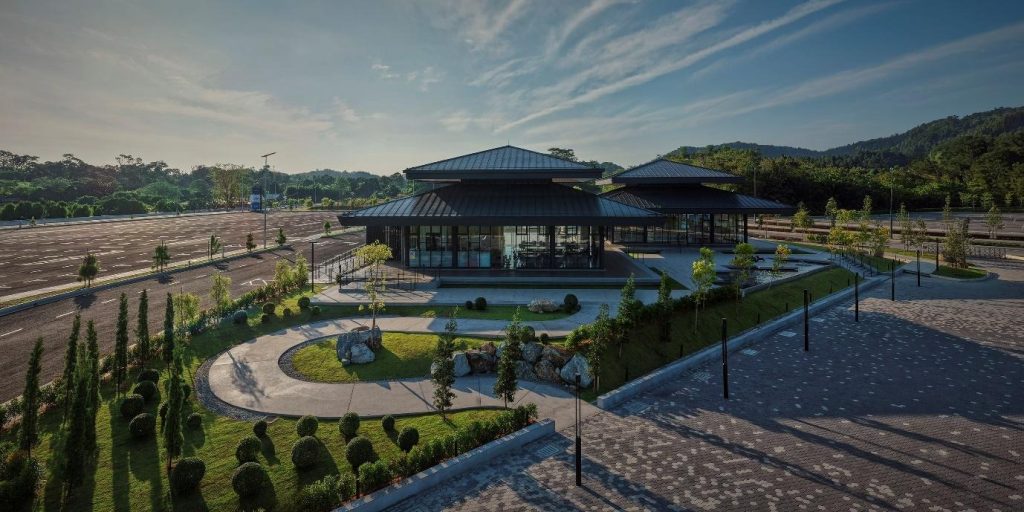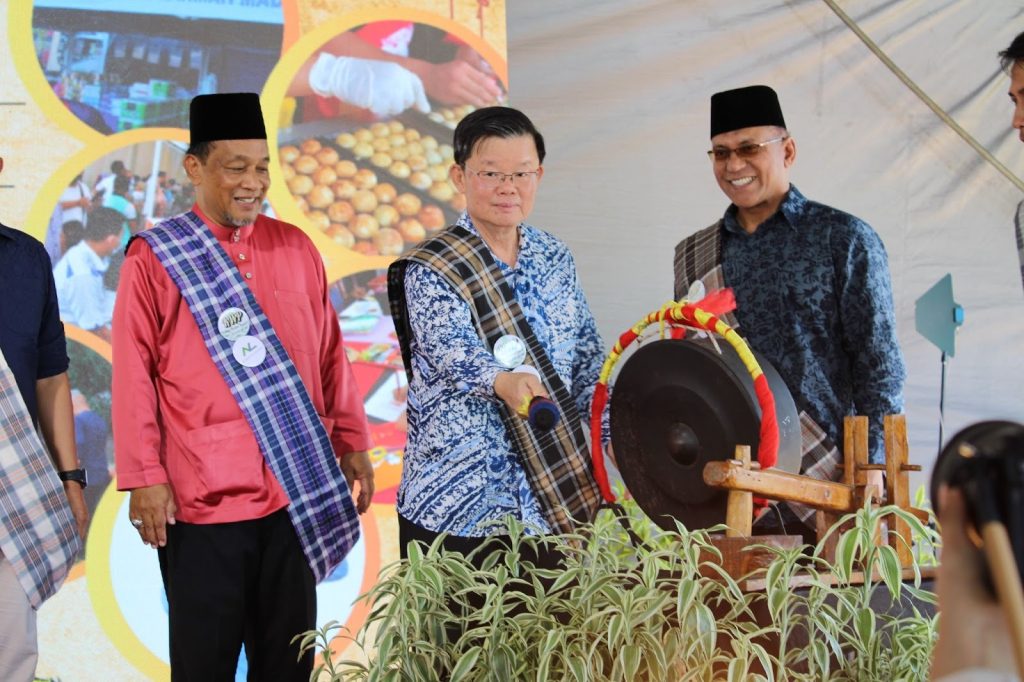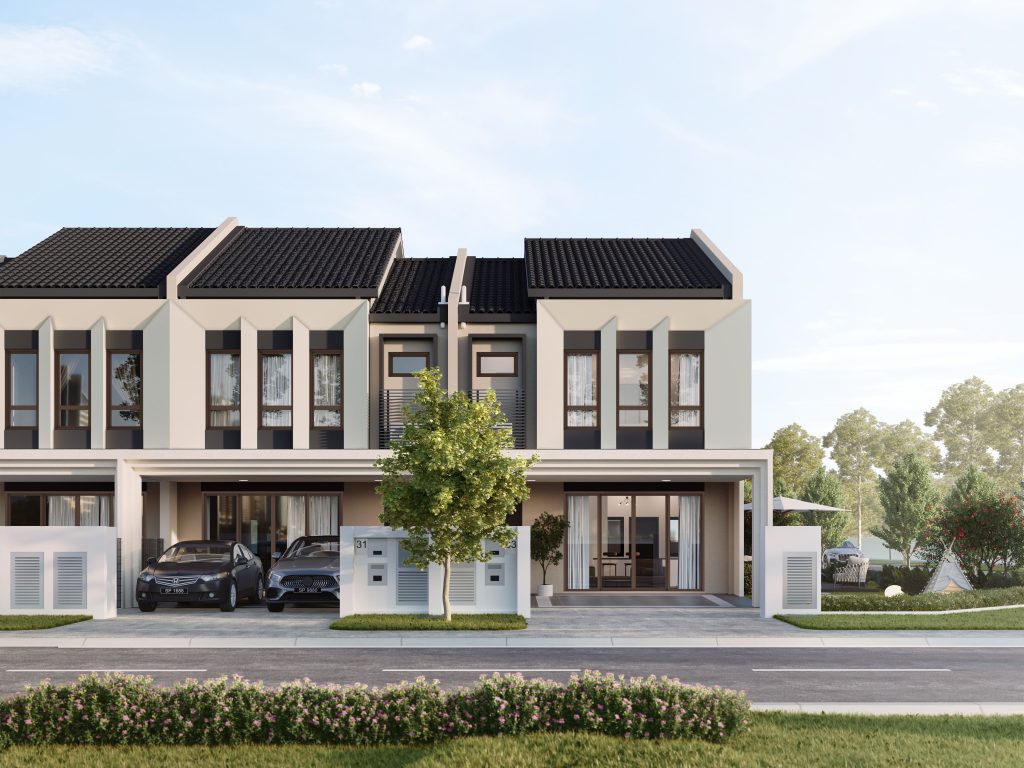
Star Media Group (SMG) chairman Tan Sri Wong Foon Meng (right) presenting a souvenir to Nga as SMG group chief executive officer Chan Seng Fatt applauds — IZZRAFIQ ALIAS/The Star
HOC 3.0, new Acts and amendments in the works
The 10th anniversary of the StarProperty Awards 2025 was more than a celebration of real estate excellence. It was a reflection of how far the Malaysian property sector has come and where it is boldly heading next.
Addressing a packed ballroom of industry leaders, Housing and Local Government Minister Nga Kor Ming delivered a wide-ranging speech that charted the property sector’s progress, identified key systemic gaps and laid out the government’s comprehensive vision to rejuvenate urban centres, modernise regulations and restore confidence among buyers and investors.
“Tonight, we recognise the visionary leaders who have shaped Malaysia’s property landscape and applaud the property developers for redefining what is possible in real estate,” Nga said, noting the significance of the event’s 10-year milestone.
A Strong Market Rebound
Nga praised the industry’s resilience through past economic headwinds, pointing to a sharp rebound in 2024 that saw Malaysia record its highest property transaction volume and value in a decade. According to the Valuation and Property Services Department, transaction value jumped by 18% to RM232.3 billion in 2024, driven by political stability, favourable government policies, and renewed investor confidence.
This remarkable achievement has set a positive tone for 2025, said Nga. “This strong performance was driven by factors such as political stability, favourable government policies and rising investor confidence. In 2025, Malaysia’s property market is projected to maintain steady growth, with a targeted transaction value of RM200 billion.”
URA: A game-changer in the making
But beneath the optimism lies a more pressing challenge: Urban decay in older neighbourhoods. Nga spoke passionately about the Urban Renewal Act (URA), which the Ministry of Housing and Local Government (KPKT) aims to table this year. The proposed bill includes three pillars, namely Urban Redevelopment, Urban Regeneration and Urban Revitalisation, and is designed to facilitate the renewal of ageing, underutilised and dilapidated urban properties.
“We must avoid the tale of two cities — where one side thrives while the other deteriorates,” he said. “DBKL (Kuala Lumpur City Council) has identified 139 urban renewal sites in Kuala Lumpur with an estimated gross development value (GDV) of RM355.3 billion.”
Nga cited a recent site visit with Members of Parliament, where they inspected multiple run-down residential buildings. The findings were stark with mould-infested walls, broken lifts and unsafe rooftops being evidence of systemic neglect that threatens both resident wellbeing and property values.
“Through the Urban Renewal Act, we aim to streamline the urban renewal process in order to ensure that the rights of property owners are safeguarded while simultaneously improving the living environment and revitalising the local economy in deteriorating urban areas,” he said.
Building Managers Act to raise standards
Complementing the urban renewal agenda is another legislative proposal, namely the Building Managers Act, which aims to address widespread issues of poor property management, especially in strata developments.
Currently, just 594 licensed firms manage over 26,000 strata schemes involving nearly three million units, a staggering imbalance that often leaves residents with deteriorating common areas and plunging property values.
Each firm is managing nearly 5,000 strata units on average and this is clearly unsustainable, Nga said, adding that the Act would professionalise and standardise building management to ensure quality upkeep and protect property investments.
RPDA to modernise legal frameworks
Nga also unveiled plans for the Real Property Development Act (RPDA), a long-overdue update to Malaysia’s Housing Development Act 1966. The existing law only applies to residential units and leaves out an increasingly important segment, that is, integrated and commercial developments such as Small-office-Versatile-offices (SoVos), Small-office-Flexible-offices (SoFos), strata office suites and shop lots. The RPDA seeks to fill this gap by extending buyer protections to commercial strata property purchasers. It also introduces the Option to Purchase (OTP), a more formalised sales process that empowers buyers with the right to terminate the Sale and Purchase Agreement (SPA) if a developer fails to meet project milestones.
These measures will raise accountability and give buyers greater recourse, Nga explained, adding that this reflects KPKT’s commitment to modernising laws in line with evolving market realities.
Tackling sick and abandoned projects
To further shore up public confidence, Nga highlighted the Ministry’s ongoing efforts to resolve Malaysia’s chronic problem of sick and abandoned private housing projects. Since its establishment, the special task force under KPKT has successfully rescued 1,044 housing projects with a total value of RM100.1bil, benefitting over 124,000 homebuyers.
“This shows our seriousness in tackling root issues, not just symptoms,” he said.
Preparing for HOC 3.0 and AREC 2025
To counter external economic headwinds, KPKT is also preparing the next phase of the Home Ownership Campaign (HOC) 3.0, which will be announced ahead of the ASEAN Real Estate Conference (AREC), set to take place from July 23 to 26 at the Kuala Lumpur Convention Centre (KLCC).
With Malaysia’s national homeownership rate currently at 76.9%, the government sees HOC 3.0 as a way to encourage demand and protect market momentum.
Looking Ahead
Nga closed his speech with a strong message of collaboration and innovation, lauding the evening’s winners and nominees for setting the bar in Malaysian real estate.
“Your achievements are a reflection of the hard work, creativity and passion that define our industry. I have no doubt that as we continue to collaborate and innovate, we will build a future where Malaysia’s property market thrives, not just locally but on the global stage,” he said.
Stay ahead of the crowd and enjoy fresh insights on real estate, property development and lifestyle trends when you subscribe to our newsletter and follow us on social media.










































